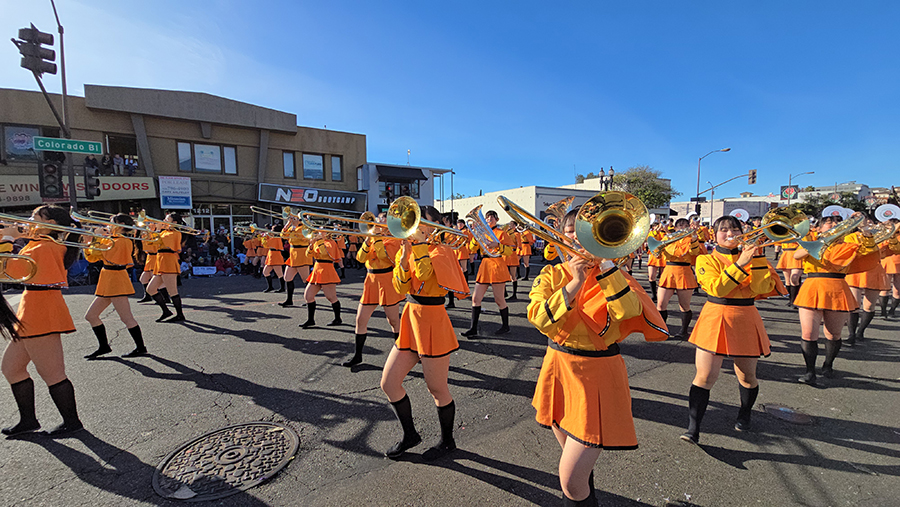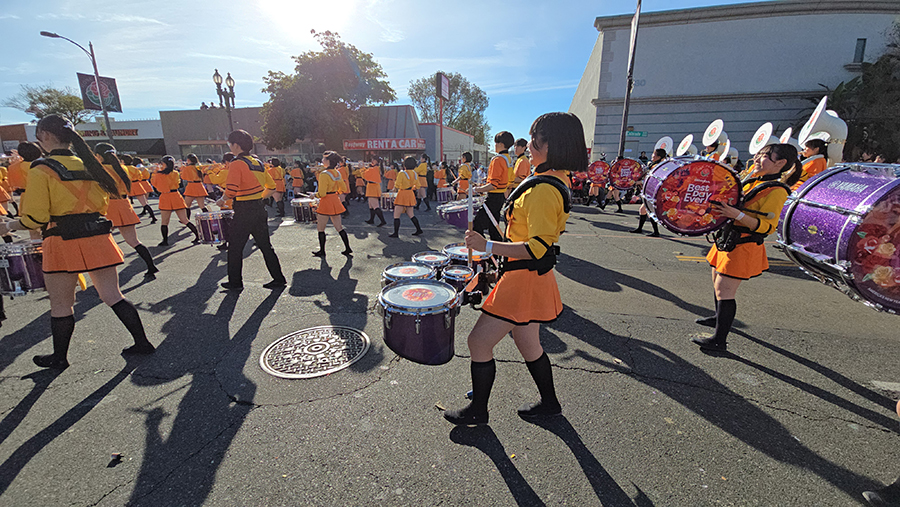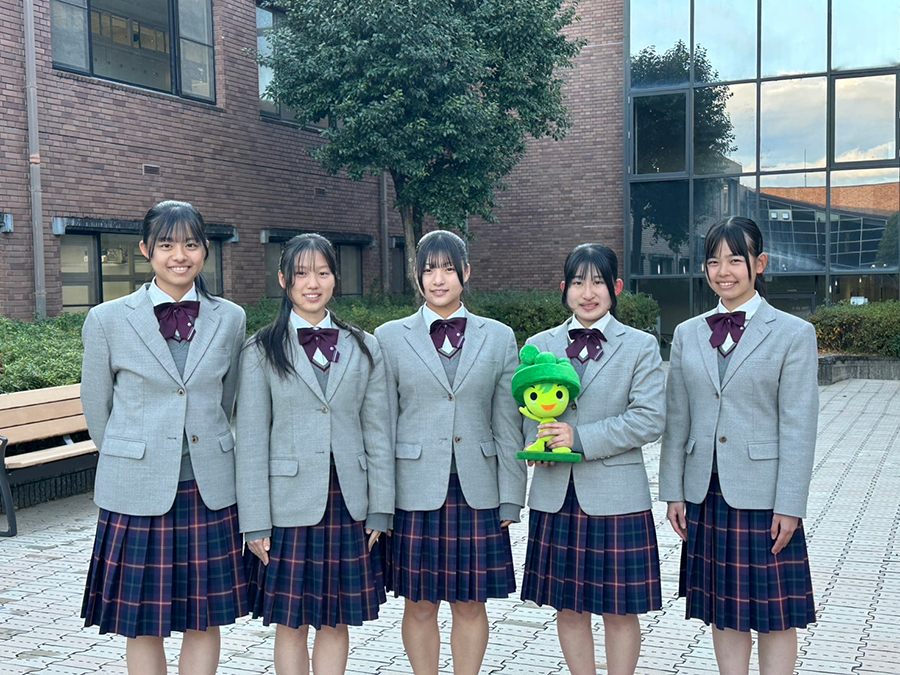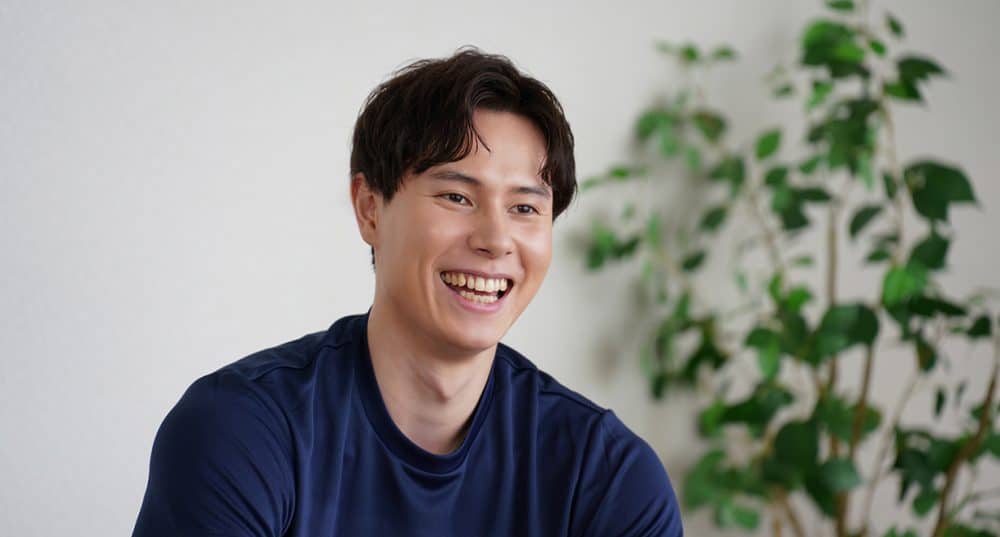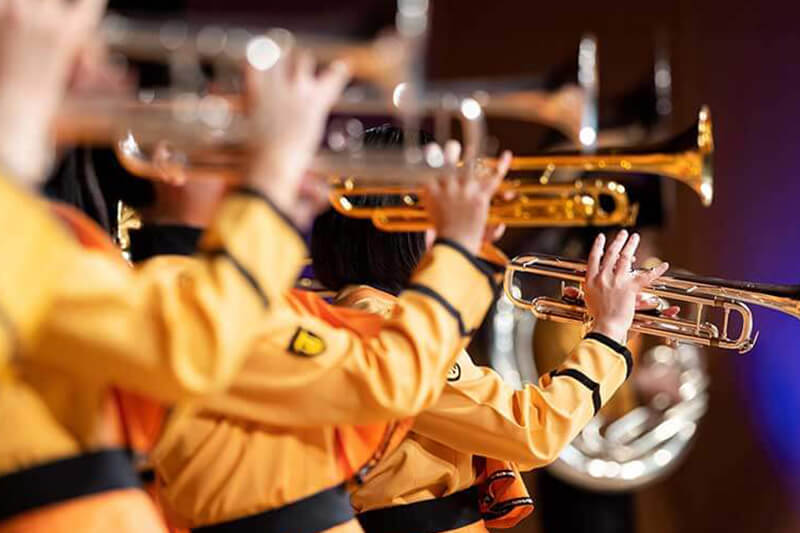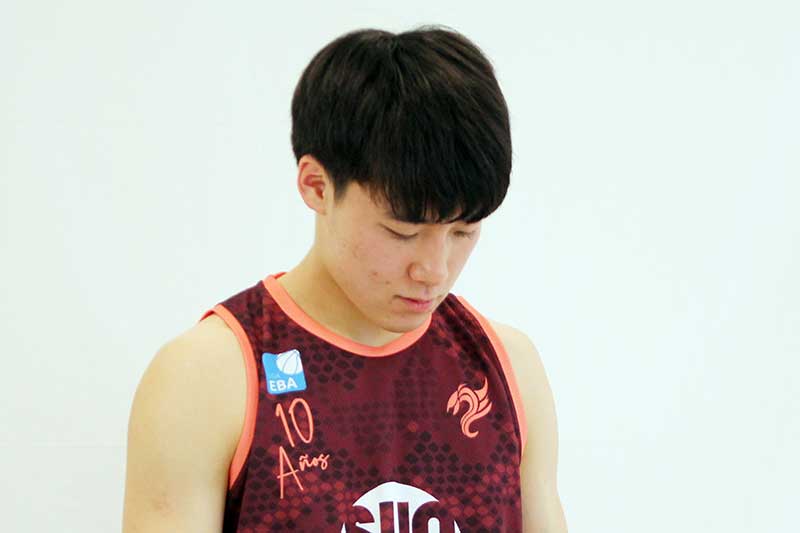Journal
サン・クロレラの取り組みや
サポートするアスリートたちのTOPICS。
Find out about Sun Chlorella's corporate activities and sponsored athletes
Kyoto Tachibana Senior High School Band

As the 121st generation band kick-started the year with new members, they achieved an incredible feat of winning the gold prize for four consecutive years and receiving all-A’s on their evaluation for the first time in Kyoto Tachibana Senior High School’s history. With certainty and confidence, they performed at the event of their dreams, the Rose Parade.
There, the band members received a kind of reaction from the audience and even engaged in mutual communication which was different from what they experienced in Japan. Performing at the Rose Parade reminded them of the joy of music, and they returned home with a renewed sense of inspiration.
In the second half of the interview, we learn about the surprises and memorable moments they experienced at the Rose Parade, their feelings for the upcoming annual concert in March which would be their last stage as the 121st group, and future goals.
The Rose Parade and reaffirming the power of music
The Kyoto Tachibana Senior High School Band first performed at the Rose Parade in Los Angeles thirteen years ago, in 2012. Their performance garnered attention on YouTube, and it was the first time that they became famous as the Orange Devils, their nickname. Which is why it’s not an overstatement to deem that the brass band’s march at the Rose Parade was what brought them their worldwide recognition. They performed for the second time in 2018, and here we are, seven years later.
Kumagai: Before anything else, I was stunned at how large the crowd was. The distance with the audience was so close, and because I was positioned to perform at the end of the row, the audience was right next to me. They were so close that I would do high-fives with them when I wasn’t playing my part. Until then, my experience of performing in front of an audience was like, they would watch us perform on stage from far away, but at the Rose Parade it felt as if we were in this musical experience together, which is perhaps the most significant difference in my opinion.
Fujiwara: It was fun in a different way compared to when we perform in Japan. Everybody was singing, dancing, and chanting to our performance. I was nervous before the parade because I can’t speak English, but we were able to share the same joy through music, which made me reaffirm my love for what we do.
Takahama: The Rose Parade is 9 km long and the duration is about two and a half hours. We’ve never performed that long before, so I was worried if we had enough stamina. But because of the loud cheers and we could see how everyone there enjoyed our performance, we had a great time, and it was over before we knew it.
Kamata: As a drum major, I marched in the front and center of our band. I too could see that the audience was excited. I don’t think I’ve ever felt that happy before from performing. We were joined by seven generations of alumni members to perform together, which was also a first for me, and we all had so much fun. Performing in the parade was truly one of the best moments in my life.
Oyama: I saw the 2018 Rose Parade on YouTube and became a fan which is why I joined the Kyoto Tachibana Senior High School Band. I never thought that I would be participating in the same parade as one of the performers, so it was a dream come true for me. Before we performed, we talked about performing in a way that we can’t do in Japan, so between songs I would exchange high fives with the audience, and I’m happy that I got to experience things that are unique to the Rose Parade.
Not everything went smoothly at the event. For example, because the band did not have a fixed set list, the coach would give a hand sign to instruct which song to play before each performance. The percussionists would see it and start playing the introduction, and only then would the rest of the band know which song they’d be playing. One time, the hand sign was misunderstood by some of the percussionists, which caused them to start playing two different songs at once. The band was confused for a moment, but because the percussionists immediately corrected themselves and carried on with playing the same song, the rest of the performance continued smoothly. “I think that being able to immediately identify mistakes and recover from it is also one of our team’s strengths,” says club president Kumagai.
Watching video recordings of their own performance at the Rose Parade, the 121st generation members once again saw that there are fans not just in Japan but all over the world. They are pleasantly amazed, but at the same time feeling a sense of responsibility to perform in a way that measures up to the attention and satisfies the fans’ expectations, which further fuels their determination to deliver an even better-quality performance.
The last stage of the 121st, as the curtain rises for the 122nd
With lingering excitement from the Rose Parade, the Kyoto Tachibana Senior High School Band was already preparing for their next performance. It’s their annual concert in March, which would be the culmination of three years’ hard work for the graduating students and the last performance by the 121st generation band. The members all say, “We hope to show our best performance to everyone in the audience who has gone out of their way to come listen to us.”
Kamata: We are determined to deliver a performance that our audience can truly enjoy, so right now we are working on program composition and practicing very hard. It’s also going to be my last opportunity to perform as a band member with these members. I hope to give my best so that we can finish our performance with smiles on our faces. When each of our names are called before we exit the stage one by one, I would like to be smiling brighter than anyone else.
Kumagai: Like in the Rose Parade, we experienced firsthand how we were the center of attention for so many people, all over the world. On the other hand, this annual concert is our concert, where our audience already knows who we are and comes all the way to watch us perform. I hope to deliver a moving performance so that our audience can see how our band is really something special.
Fujiwara: Like Kumagai was also saying, this is a concert where people would come just to listen to the Kyoto Tachibana Senior High School Band. The managerial members are now coming up with ideas and discussing about program composition so that our audience can feel that it was worth it. We produced a lot of successful results this year, so I hope to end it by delivering our absolute best in our last performance.
Takahama: The annual concert is the culmination of that academic year’s practices and performances. For the graduating students, it is the finale of their three years of dedication to this club. I hope to perform in a way that inspires our audience to renew their appreciation for music in general, and not just about Kyoto Tachibana or wind orchestra.
Oyama: It would be my last stage to perform with the third-year seniors. It’s sad that that moment is approaching, but we juniors must make sure that we perform our best so that they can graduate with smiles on their faces. The quality of the performance must also be convincing for them to feel that the band is safe with us and it’s okay for them to graduate.
As the band members prepare for their next stage, a vote was held to select the 122nd club president. The selection process was also different compared to previous years, changed according to their own ideas. The adviser to the club appointed the conductor and drum major from the five managerial members, and the club president and vice presidents were voted by all the members. As a result, Oyama was selected as the upcoming 122nd club president.
Oyama: We each got to vote, and one by one, the results were opened in front of everyone. Each time a vote was added to my name, I gradually felt a sense of responsibility and pressure to be the next club president. After I was officially selected as the club president, I had an opportunity to speak in front of everyone. When I looked at their faces as I spoke, I realized how I would have to be responsible since many of them voted for me. This year, our team took on many challenges, and the seniors led us through it all. Which is why I am determined to continue our band with energy even greater than those of our seniors! A lot of us in the same grade have unique personalities, so I think we’d be fine.
Kumagai: I think that Oyama has the ability to observe her colleagues and the environment objectively. She gets it immediately without having to listen to everything, understands what needs to be done, and takes the initiative on her own. So, from early on, I felt that she would be fit to become the next club president.
Kamata: Last year we were both in charge of the clarinet when marching. Oyama was by far the most mature in our first year, and I remember how I already felt a club president aura from her.
Oyama: We achieved a record of winning the gold prize at the All Japan Marching Contest for four consecutive years, so next year we would be expected to win the fifth. I feel strongly about our generation not disrupting the track record that our seniors have built. Last year, we were also able to participate in the Kansai Contest for the first time with our seated performance. That was another thing that the seniors have been working for, to show that Kyoto Tachibana is not just a marching band. I’ve seen their efforts since my first year in the band, so whether we’re playing seated or marching, I hope to inspire people emotionally and bring smiles on their faces.
Oyama, the new club president, is eager to go a step further and continue taking on new challenges. She is also a unique performer, playing different instruments depending on whether it’s a seated performance or marching. Having a club president like her might make her into a symbolic figure of the 122nd generation team as they enter a new phase.
Five dreams, messages to aspiring students
Kamata: I recall saying that I wanted to be a flight attendant last year. I still want to work in an environment where I can use my English skills, so I will be going to a university where I can study English. Our band traveled to Taiwan and the U.S. where we talked to people from other countries, so I would like to learn English as my second language and more to hopefully work at a job where I can communicate with people through language.
Kumagai: I think my dream last year was to become a lawyer, but the university that I am going to is strong in the sciences, so I’m torn because the education I wish to receive and the profession I hope to pursue are not the same. I am also interested in investment and management, but regardless, I think I would like to work at a job to help people in the future.
Fujiwara: I’m a supportive type of person, so I think I was fit for the role of vice president, who supports the club president. I don’t know yet what exactly I would like to be in the future, but I think I would like to help people.
Takahama: I want to be a music teacher. I met with a lot of people through music over the past three years and was blessed with many opportunities to learn about the amazing part of music. I hope to share what I learned through those encounters instead of keeping them to myself.
Oyama: I also want to be a teacher to teach Japanese. Watching our teachers make arrangements for us to travel in buses to contest venues and support us by doing a lot of behind-the-scenes work, all while teaching their own classes, inspired me to be like them.
The five members are about to move on to their next stages in life. But before they joined the Kyoto Tachibana Senior High School Band, they too must have been watching footages of concerts and the Rose Parade, or even listened to the band perform in person. So, we asked them to give a message to the aspiring students who admire their performance and are interested in continuing their legacy.
Drum major Kamata recalls, “There are many experiences that are unique to this club. My days of youth over the past three years has been amazing through music. It was so fun that I don’t want to graduate yet.” Fujiwara says, “by participating in contests, your high school life feels more intense and worthwhile, and you gain a higher sense of purpose.” Takahama, who would continue playing music in college, looks back emotionally, “I got to truly experience the joy of music over these three years.” The next club president Oyama says with anticipation, “we interact with a lot of people because we travel a lot across the country, so you can improve your communication skills too.” And last but not least, acting club president Kumagai sums it up beautifully, “We travel a lot, and every day felt like a school trip, or maybe more like a band tour. We gain a lot of worldwide attention, and there are plenty of valuable opportunities that not many high school students get to experience.”
Referred to as a group of unique individuals by Oyama, the upcoming seniors is the largest group of members in one grade in the past several years. Curtains are quietly rising for the 122nd generation members to begin their stage in spring. The Kyoto Tachibana Senior High School Band has gone through various changes and new challenges this year, leading them to achieve their first time ever feat of winning the gold prize with all A’s on the evaluation. What new endeavors and records will they show us next year? Fans are looking forward to seeing their vibrant, energetic performances again.
